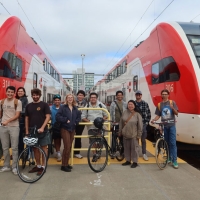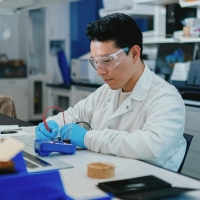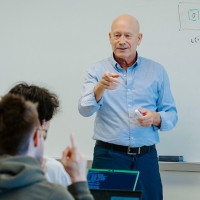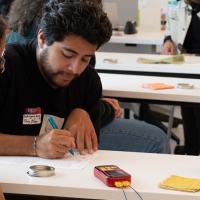Aminatou Dabokemp and Michael Davis named 2021 CoSE hood recipients
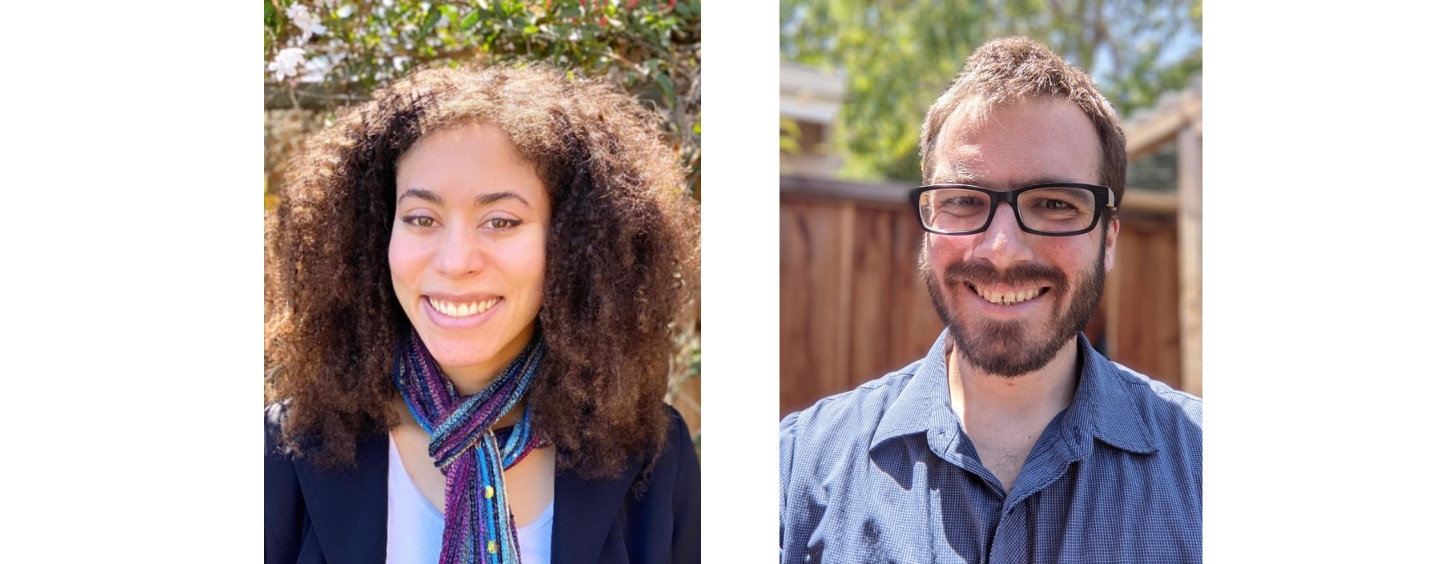
Twelve outstanding graduates will be honored during San Francisco State University’s 120th Commencement ceremony, the second to be held virtually due to the COVID-19 pandemic, on Friday, May 21. They will represent their more than 8,400 peers in the Class of 2021.
The College of Science & Engineering has chosen Aminatou Dabokemp and Michael Davis as the undergraduate and graduate hood recipients, respectively. Read on to learn about the accomplishments of these exceptional students.
Aminatou Dabokemp, College of Science & Engineering
Aminatou Dabokemp graduates with a B.S. in Physics with a concentration in Astrophysics. And while completing a challenging degree program and conducting research in three different fields, Dabokemp still found time to give back to the community.
Her research, some of which she presented at the CSU Student Research Competition, has included studying how a type of nanoparticle scatters light, searching astronomical databases for stars rich in certain kinds of elements and seeking to identify scattering events from particles of dark matter.
At the same time, Dabokemp has been a leader in the department. She served as the event coordinator for Women in Physics and Astronomy and represented her department on the college’s Anti-Racism Task Force. She also tutors elementary school students and has worked as a docent for the SF State Observatory.
Dabokemp is a founding member of Astronomers for Planet Earth, an advocacy organization focusing on climate change, and has contributed to vaccine distribution and administration during the pandemic. She will attend New York University for a Ph.D. in physics.
Michael Davis
After seven years of teaching high-school chemistry and physics, Michael Davis came to SF State to pursue an M.S. in Geosciences. He joined Professor of Earth and Climate Sciences Mary Leech’s research group, where he applied his strong chemistry skills toward the group’s research on rocks from the Adirondack Mountains. But COVID-19 upended both Davis’ plan to pursue fieldwork in the Adirondacks and his funding from the U.S. Geological Survey.
Undeterred, Davis persisted in his research, using computers to study rocks he couldn’t seek out in the field. His modeling of how these rocks respond to changes in temperature and their chemical environment has drawn considerable interest during his presentations at national scientific conferences.
During his time at SF State, Davis has been deeply involved in the teaching mission of the Department of Earth and Climate Sciences. He taught several introductory geology lab courses, where he was appreciated by students and faculty alike.
